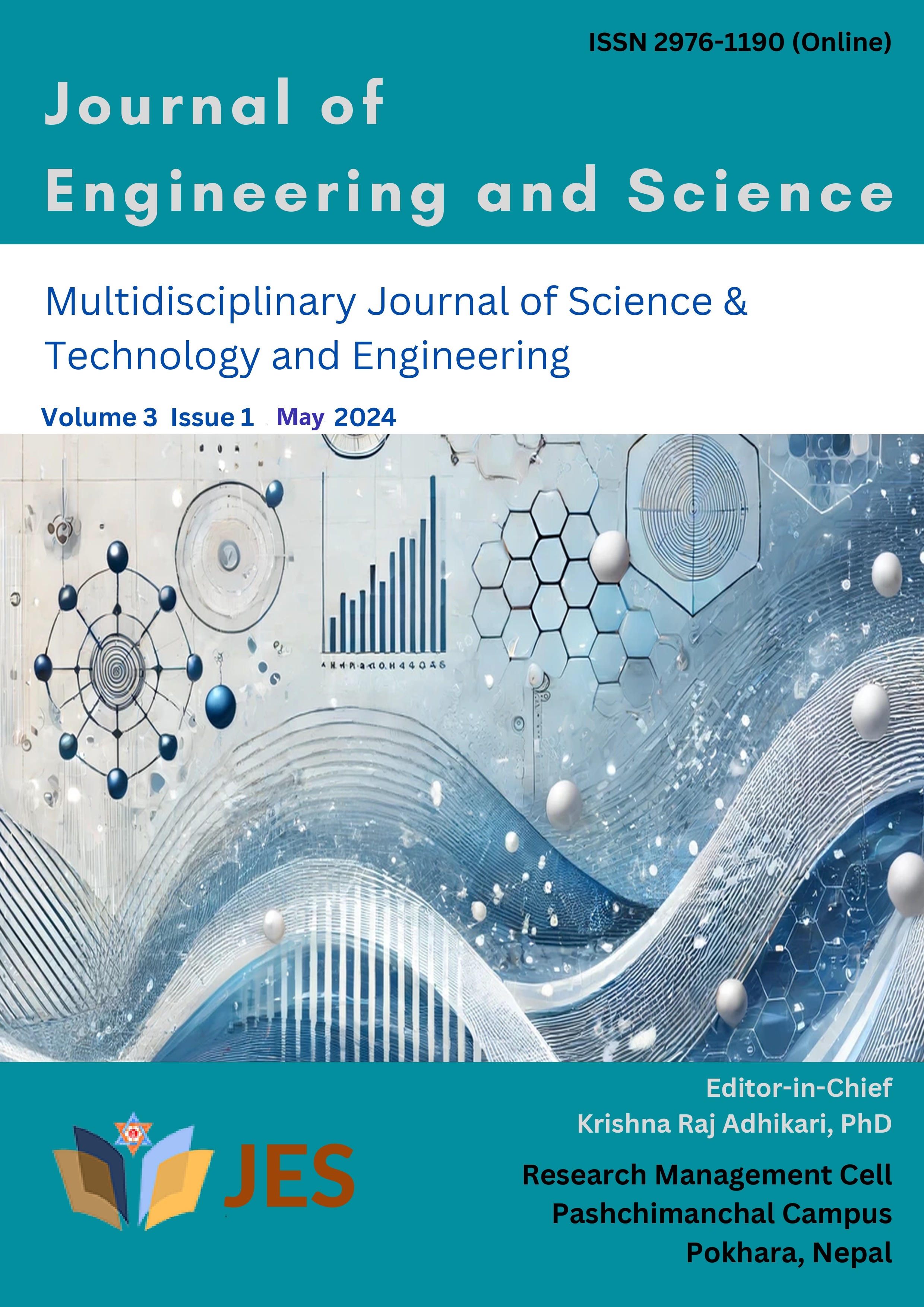Enhancement in Anticancer Activity of Chitosan Tailored Imidazole-2-Thiosemicarbazones against MCF-7 Cancer Cell Line by Coordination with Copper(II) Ions
DOI:
https://doi.org/10.3126/jes2.v3i1.66226Keywords:
Anticancer activity, Chitosan imidazole-2-thiosemicarbazones, Coordination behavior, Copper(II) chitosan imidazole-2-thiosemicarbazones, MCF-7 cell line, NIH3T3 cellsAbstract
The coordination behavior of new batch synthesized chitosan imidazole-2-thiosemicarbazones tailored from both the low molecular weight commercial chitosan and high molecular weight crab shell chitosan was confirmed by Fourier Transform Infrared (FT-IR) and magnetic susceptibility measurements. Chlorine content in the complexes was estimated by potentiometric titration technique. The study showed the tridentate NNS tridentate coordination with copper (II) ion in a square planar orientation with the remaining valence satisfied by coordination with chloride ion. The MTT assay studies showed an enhancement in the anticancer activity of these chitosan thiosemicarbazone ligands upon their coordination with copper (II) ions against the human breast cancer (MCF-7) cell line in vitro. The minimal cytotoxicity of both the ligands and complexes against the normal mouse embryonic fibroblast (NIH3T3) cells revealed the selective attraction of these biomaterial chitosan derivatives towards the cancer cells with non-toxicity to healthy cells. There was only a marginal effect of molecular weight (Mw) and degree of deacetylation (DDA) of chitosan upon the anticancer activity of these chitosan derivatives.
Downloads
Downloads
Published
How to Cite
Issue
Section
License
Copyright (c) 2024 The Author(s)

This work is licensed under a Creative Commons Attribution 4.0 International License.
CC BY: This license allows reusers to distribute, remix, adapt, and build upon the material in any medium or format, so long as attribution is given to the creator. The license allows for commercial use.




